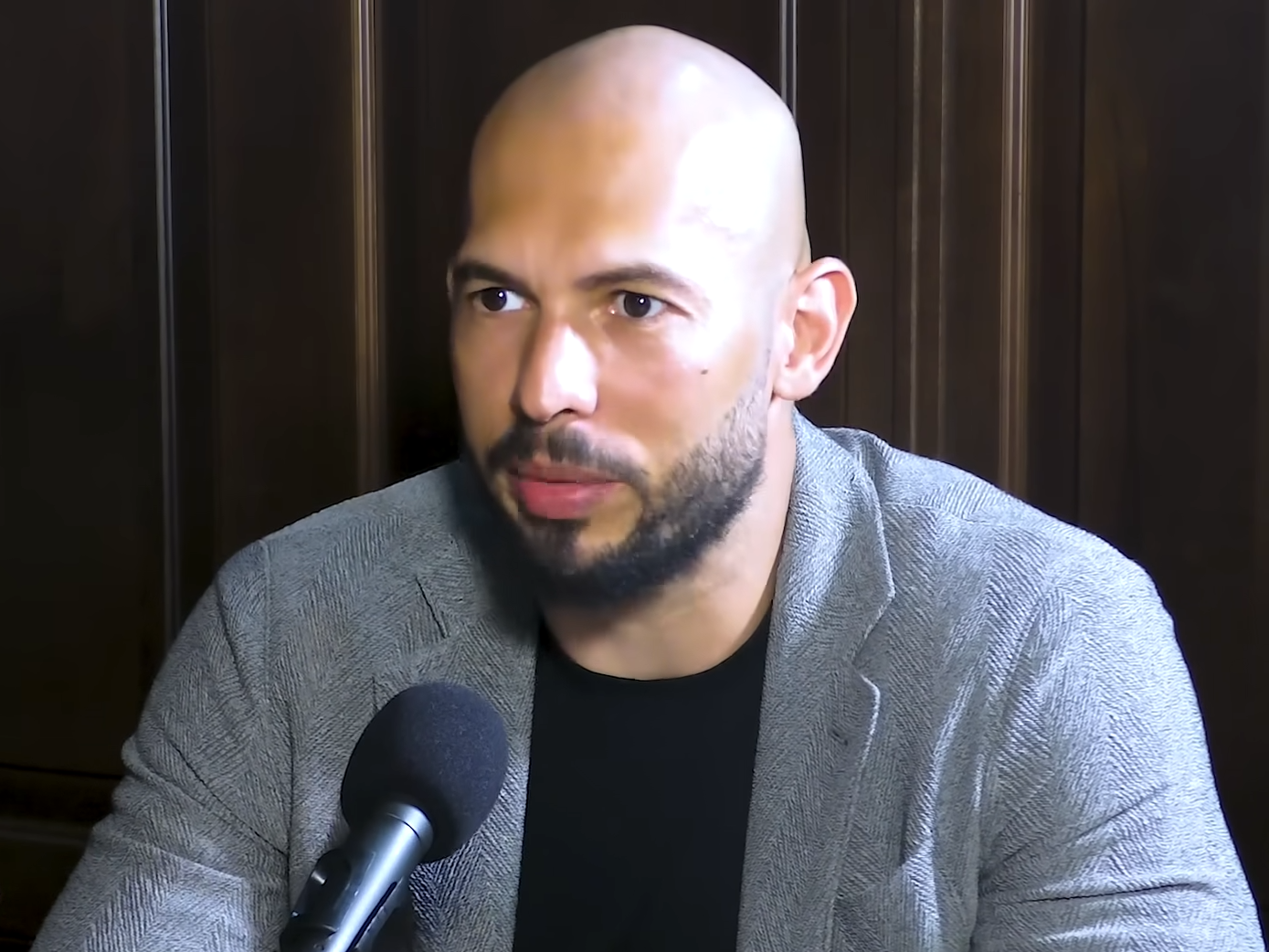A recent study has found one in five young men in the UK look favourably on self-styled misogynist Andrew Tate, whose programme to masculinise boys raked in millions of followers.
Despite facing charges of human trafficking in Romania, the controversial figure has continued to expand his audience. Tate was readmitted to X in November 2022 after Elon Musk’s acquisition of the platform, and as of February 2024 he had 8.8 million followers.
Understandably, his exponential influence has become a problem for both schools and parents.
So who is Andrew Tate and why do people admire him?
Tate, dubbed ‘the King of toxic masculinity’, is an American-British former kickboxer turned social media personality. He moved to Luton from Chicago with his mother and siblings after his parents divorced in 1997. Tate appeared on the reality show Big Brother in 2016, and despite being kicked off the show after six days after producers discovered footage of him allegedly hitting a woman with a belt, his far-right, sexist, views still garnered him a dedicated online following.
Before a campaign to de-platform him Tate had 4.7 million followers on Instagram, while he was also banned from Facebook and TikTok, where on the latter videos using his the hashtag Tate have been viewed over 13 billion times. YouTube followed suit, suspending his channel which had 760,000 subscribers.
Explaining the reasons for his popularity is not simple. A recent study by the Financial Times found that social media algorithms are trapping users in echo chambers, recycling Tate and similar content to users, while restricting countering views. Post #MeToo feminism, economic downturn, and the deregulation of X have all been cited as reasons.
On the social news site Reddit, one user, under the name u/No_Covid_Shot, spoke of their admiration for Tate: “The man came from nothing. A poor, skinny chess nerd from a broken family. From homeless shelters to government housing. He had to actually fight his way out of poverty. Training to become a kickboxer, while picking food out of the trash.”
Tate’s carefully cultivated image of being a self-made man is often the most appealing aspect for young men, this despite his father Emory being a successful International Chess Master.
Britain’s Tate Problem
Tate was the third-most Googled figure in 2023, and the UK came out top for searches relating to the media mogul. Searches for Tate spiked in March when he and his brother, Tristan, were released from police custody in Romania, and again in June when they were indicted on charges of rape, human trafficking, and forming an organised crime group to sexually exploit women.
Recently, a 26-year-old male university student who looked up to Tate and held misogynistic views planned to carry out a shooting at Leeds Trinity University.
His popularity in the UK has become a problem for schools, who are now increasingly issuing guidance for teachers and parents on how to deal with his influence.
A teacher at Woodside Junior School in Buckinghamshire, Dorota Milner, said on their website: “We know children are talking about Andrew Tate, and boys, in particular, are being influenced and groomed by his views, with concerns that his power and influence could lead to radicalisation and violence against women. Girls are also in danger of accepting that what he says about women is true.”
At The Hayfield School in Doncaster, their guidance advises: “It is important to note that children and young people are still growing in their emotional, physical, and mental maturity. If they are engaging with content that promotes harmful behaviours, such as misogyny, it does not mean they fully understand or agree with what is being said, even if they claim they do.”
How to talk to a Tate Fan
Much is out of the hands of teachers, and parents struggle to contend with the untameable reach of social media, but there are solutions available.
Chris Stein, a spokesperson for the charity Future Men, which focuses on supporting young men and helping them develop into more rounded adults, has some advice to share:
“Seeking to understand what it is that another person might find attractive in a proposition, takes effort and a non-judgemental approach. It is important to offer space for sharing and the opportunity for a person to hear themselves. Feeling heard is a universal need and bringing people in as opposed to pushing them out is not a bad philosophy to pursue.“
He says that displaying curiosity is key to understanding why a figure such as Tate can appeal to someone, and that denouncing someone’s beliefs is likely to strengthen their views.
Hope not Hate, an advocacy group that tackles far-right extremism, advises that addressing the issue as early as possible is crucial, otherwise these views will become normalised.
Their website says: “Often children are simply unaware of the impact that some of the language they use can have on people around them. This can be because either they have not thought through the consequences or they believe the phrase is considered mainstream and deemed acceptable to use. Getting young people to understand the full impact and empathise with those affected can prevent issues from reoccurring.”
Tate’s readmission to X was accompanied by the likes of Donald Trump and far-right conspiracist Alex Jones, which was followed by a rise in hate-speech on the platform, but parents and friends can take steps to limit their influence and provide sound guidance.
Some useful tools for parents include:




